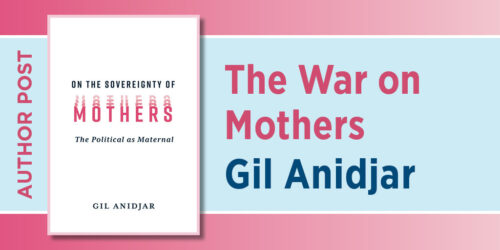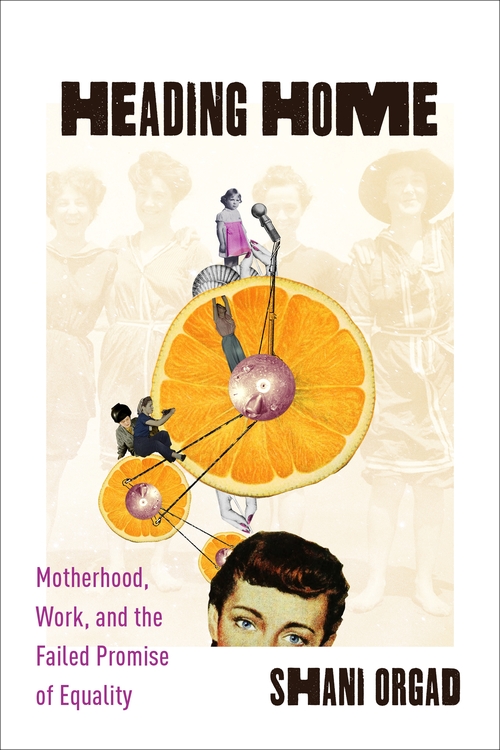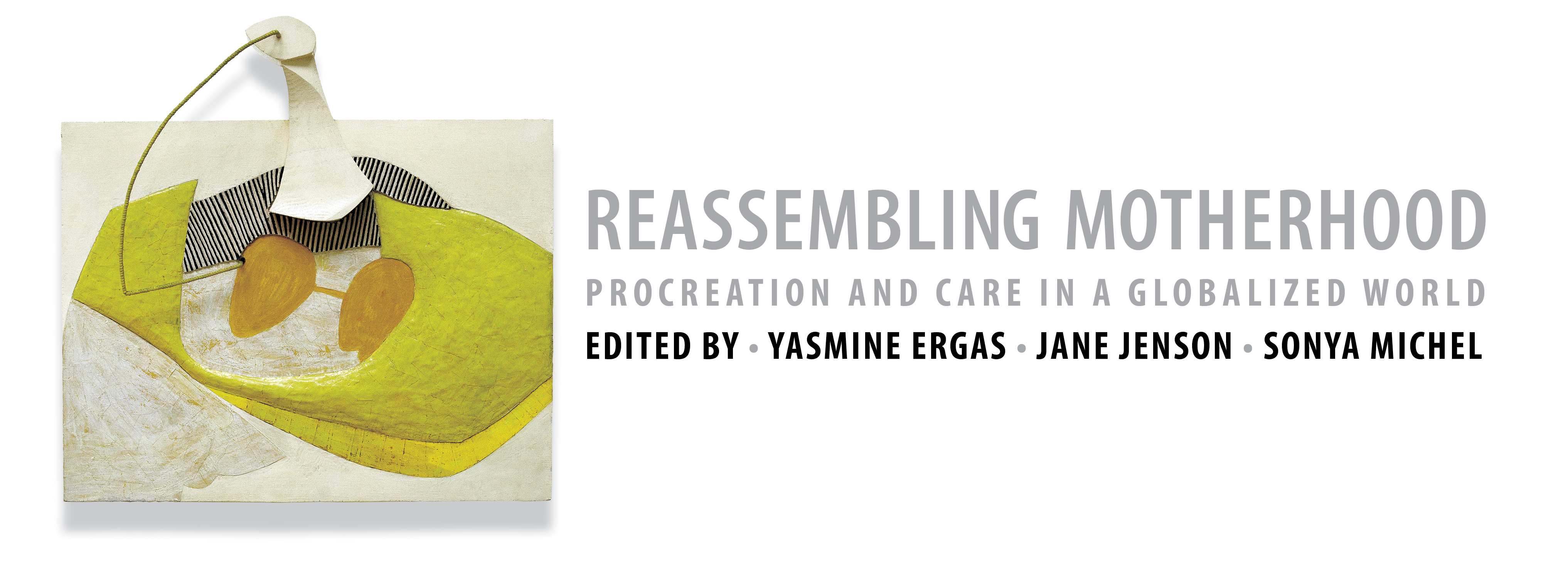The Ethics and Ambivalence of Motherhood — Sarah LaChance Adams
“Mothers have opportunity for great crimes and great heroism. Maternal ethics are illustrative precisely because both these options are possible; we are capable of being both better and worse than we typically imagine.”—Sarah LaChance Adams
Mother’s Day is Sunday and we turn to Mad Mothers, Bad Mothers, and What a “Good” Mother Would Do: The Ethics of Ambivalence, by Sarah LaChance Adams. In the book, Adams explores some of the inherent tensions of motherhood to draw a more nuanced portrait of the mother and child relationship and maternal ambivalence.
In the following excerpt from the conclusion, Adams considers some of the philosophical and ethical issues related to motherhood and the complications of being a mother:
Philosophers can make a unique contribution to clarifying the complexities of the maternal situation, but in order to do so they must listen carefully to the experiences of mothers to understand their material and social conditions. Generally speaking, the philosophical canon is guilty of either ignoring or mistreating mothers. If philosophy is to have concrete relevance, then it must go beyond the metaphorical and romanticized perspective. The metaphors we use are not neutral; they advocate an interpretation of the phenomenon in question. Thus it is only right to check these metaphorical understandings against the lives they intend to invoke.When we take seriously the true complexity of motherhood, we find that the mother-child relationship is philosophically rich indeed.
At the beginning of [Mad Mothers, Bad Mothers, and What a “Good” Mother Would Do] I said that I would demonstrate that it is because of, not in spite of, the tensions inherent to mothering that it is an instructive case for ethics. And, indeed, these discoveries extend beyond the mother-child relationship. We have found that caring for others,though it is something that one sometimes feels compelled to do, does not come naturally. Romanticizing any type of relationship or setting up impossible ideals is counterproductive. Mothers dealing with their ambivalence demonstrate how important it is to recognize one’s limitations. The acknowledgment of hostility toward someone in need is central to being able to respond more appropriately to her call. Emotion can be thought provoking, but it is also thoughtful and reflective in itself; it reveals its own understanding of a situation before it is fully reflected upon.
Conflicted mothers teach us that deliberative agency is part of what enables one to resist violence and to nurture another. Empathy and connection are a minute aspect of what is necessary for ethical responsiveness. It is usually more tedious than transcendent. Thus there must be a continually renewed commitment or adoption; one must repeatedly choose to care for another. Even in genuine mutuality the insurmountable alterity of the other cannot be overcome. While a sense of unanimity with someone may motivate an ethical response, dispute forces recognition of interpersonal divergence. When taken together, these attitudes entreat us to expand and practice self-knowledge, sound judgment, and problem-solving abilities in order to respond fittingly to one another.
The ethical successes and failures of mothers demonstrate that although our circumstances do not dictate our behaviors, they highly constrain what is possible. Ethical responsiveness requires skills, intelligence, resources, and emotional support. If an ethical response is asymmetrical (as it typically is in the mother-child relation), then this must be balanced by other factors in a person’s life. This is why meeting our responsibilities depends on the familial, political, cultural, and material context. An individualistic model of ethical responsibility is both inaccurate and destructive. It has enabled and encouraged the denial of the need for care and thereby made care work needlessly exploitative.
Acknowledging both our dependence and dependents is critical to becoming ethical and fully realizing our capacities. Children are the primal parasites that make the necessity of caregiving undeniably visible.Yet their dependency has something even greater to offer. They invite a fuller expression of our freedom. This view of freedom is not just the ability to do whatever we want. Rather, by making use of our freedom (in order to write a book, for instance) we become entangled in the lives and needs of others. This freedom is articulated not only in overt acts but also in restraint, in permitting the interruption of our enjoyment and self- possession. This generosity is not at odds with personal liberty; it is precisely the recognition of our mutual value and freedom.
Maternal experience also demonstrates that the likelihood of failure must be a part of any ethical theory. Being generous is not always prudent, beautiful, or fun. The coercive vulnerability of others can incite hostility, resentment, and even violence. But acknowledging this can lead us to consider how to reasonably meet competing demands. Recognizing the prevalence of ethical ambivalence means we cannot so easily dismiss, pathologize, or demonize those who fail. The necessity of adoption means that no one is absolved of responsibility if someone is neglected, abused,or murdered. Nietzsche wrote: “All evil do I accredit to thee: therefore do I desire of thee the good.” Mothers have opportunity for great crimes and great heroism. Maternal ethics are illustrative precisely because both these options are possible; we are capable of being both better and worse than we typically imagine.






